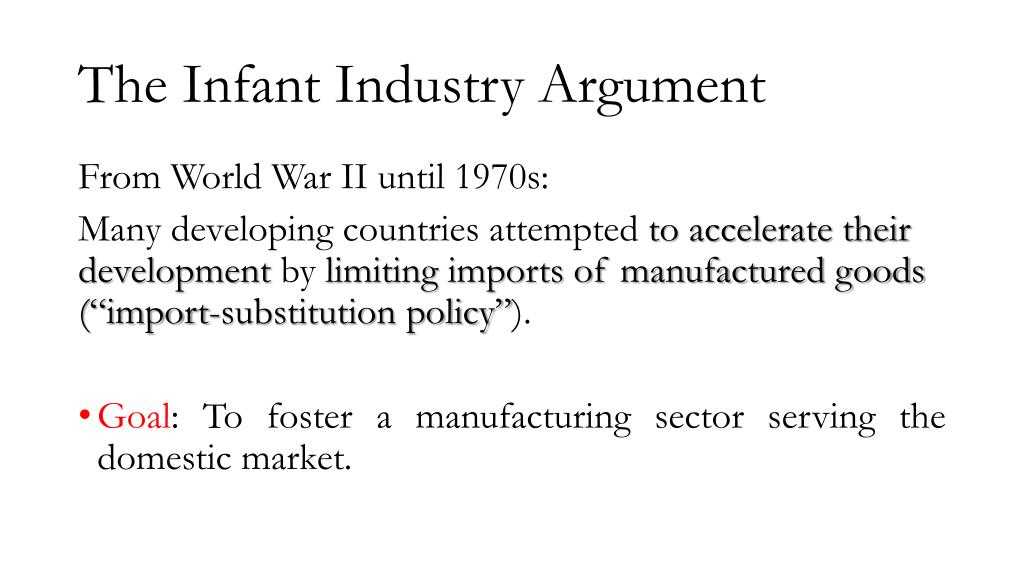Definition of Infant-Industry Theory

The infant-industry theory is an economic concept that suggests that certain industries in developing countries need protection and support from the government in their early stages of development. This theory argues that these industries are like infants that require nurturing and protection until they become competitive enough to survive in the global market.
According to the infant-industry theory, developing countries often face challenges when trying to establish new industries. These challenges include lack of technological know-how, limited access to capital, and the inability to compete with established industries in developed countries. In order to overcome these challenges, the theory proposes that the government should provide temporary protection in the form of tariffs, subsidies, or other trade barriers to shield domestic industries from foreign competition.
However, critics of the infant-industry theory argue that government intervention can lead to inefficiencies, rent-seeking behavior, and a misallocation of resources. They argue that protectionist measures can distort market signals and prevent the development of a dynamic and competitive economy. Critics also contend that the infant-industry theory is often used as an excuse for protectionism and can be manipulated by special interest groups to gain unfair advantages.
Main Arguments of Infant-Industry Theory
The main arguments of the infant-industry theory revolve around the idea that developing countries need protectionist policies to nurture and support their domestic industries in their early stages of development. These arguments are based on the belief that without such protection, these industries would not be able to compete with more established industries in developed countries.
One of the main arguments is that infant industries face significant disadvantages when competing with established industries in developed countries. These disadvantages include economies of scale, technological advancements, and access to capital and resources. Without protectionist measures such as tariffs, subsidies, or import quotas, these industries would not be able to survive and grow.
Another argument is that protecting infant industries can lead to long-term economic benefits for developing countries. By nurturing these industries, countries can create a foundation for future economic growth and diversification. This can lead to increased employment opportunities, higher wages, and improved standards of living for the population.
Furthermore, proponents of the infant-industry theory argue that protectionist policies can help overcome market failures and externalities. In the early stages of development, industries may face high start-up costs, uncertainty, and imperfect information. By providing temporary protection, governments can help these industries overcome these challenges and eventually become competitive in the global market.
However, critics of the infant-industry theory argue that protectionist measures can lead to inefficiencies and distortions in the economy. They argue that by shielding domestic industries from competition, governments may hinder innovation, productivity growth, and overall economic efficiency. Critics also point out that protectionist policies can lead to rent-seeking behavior and corruption.

Emily Bibb simplifies finance through bestselling books and articles, bridging complex concepts for everyday understanding. Engaging audiences via social media, she shares insights for financial success. Active in seminars and philanthropy, Bibb aims to create a more financially informed society, driven by her passion for empowering others.
